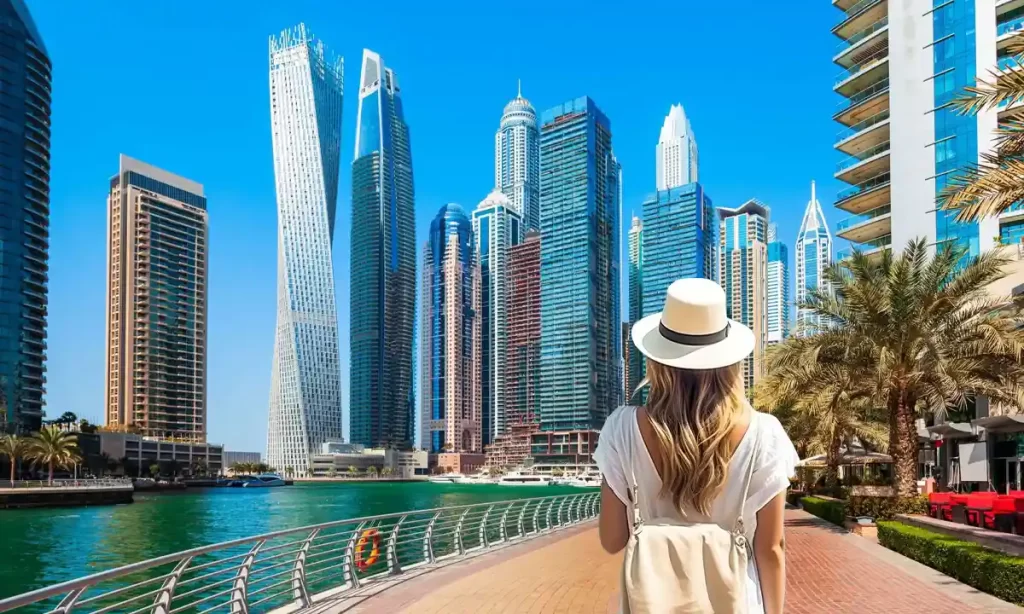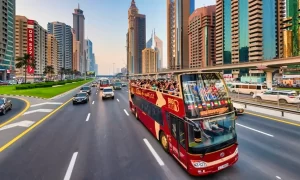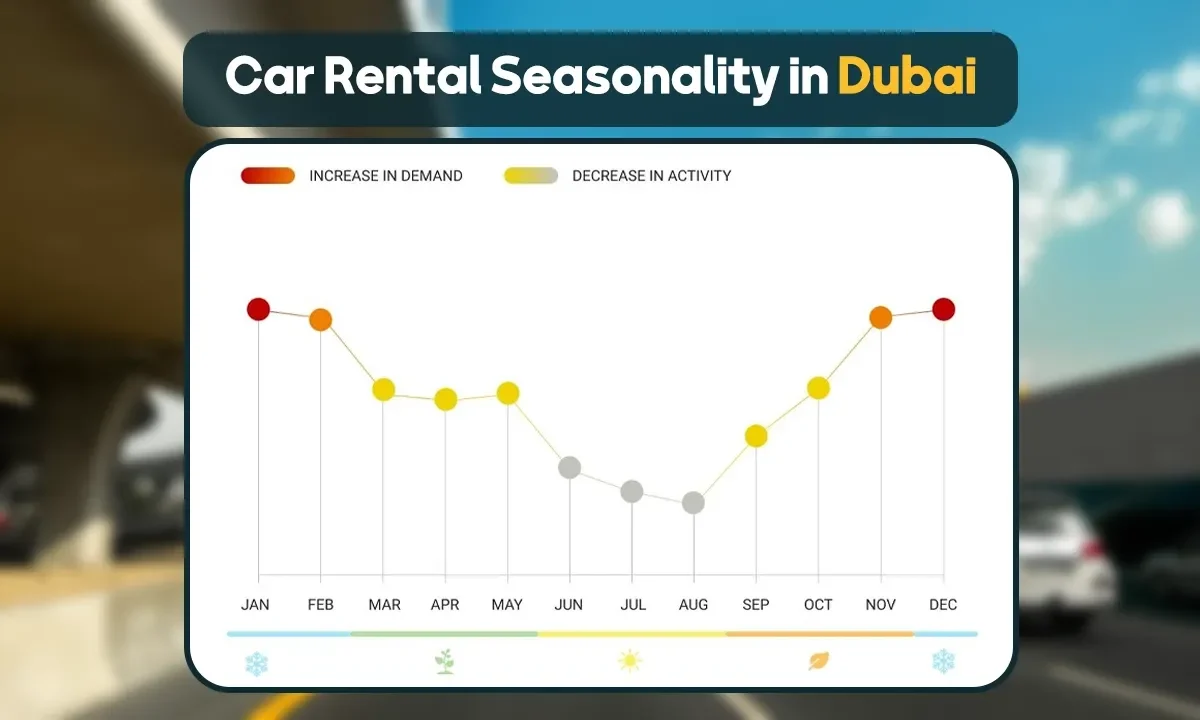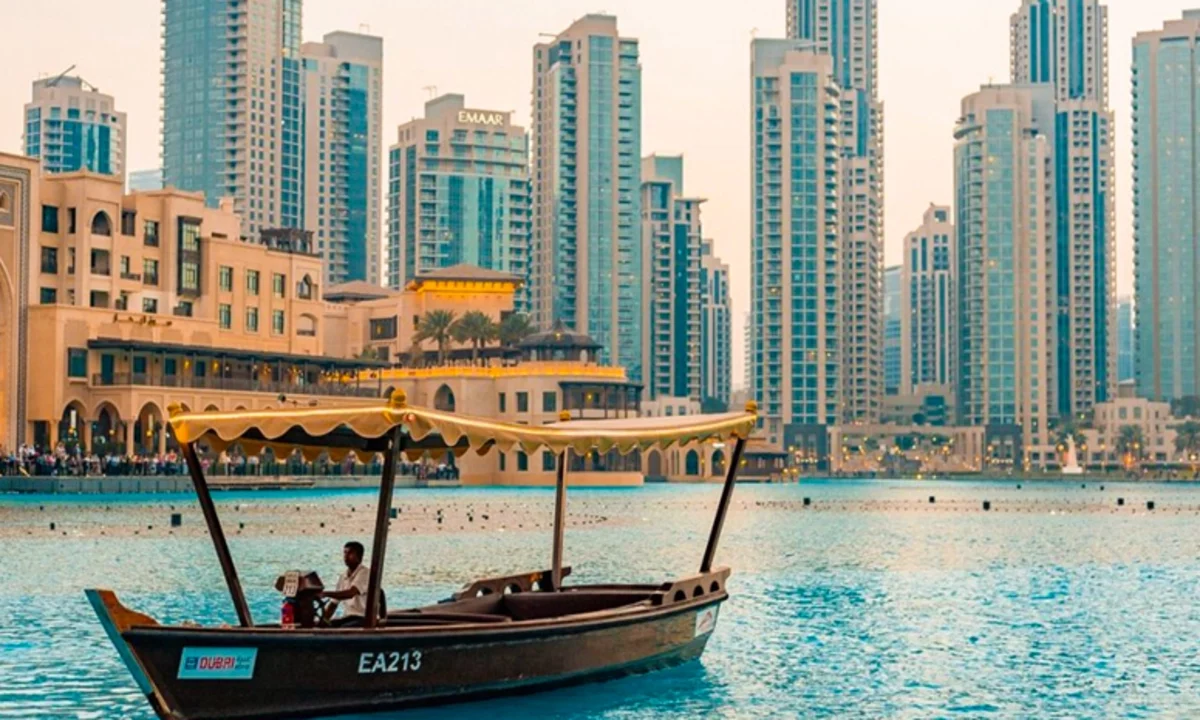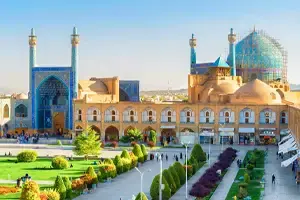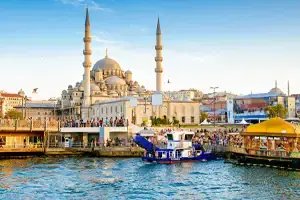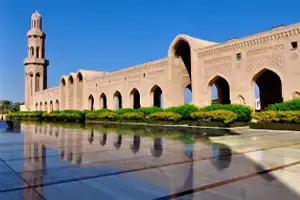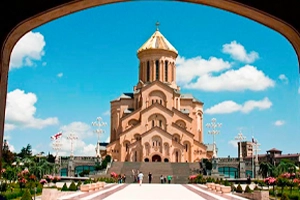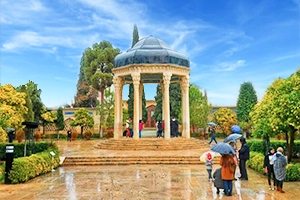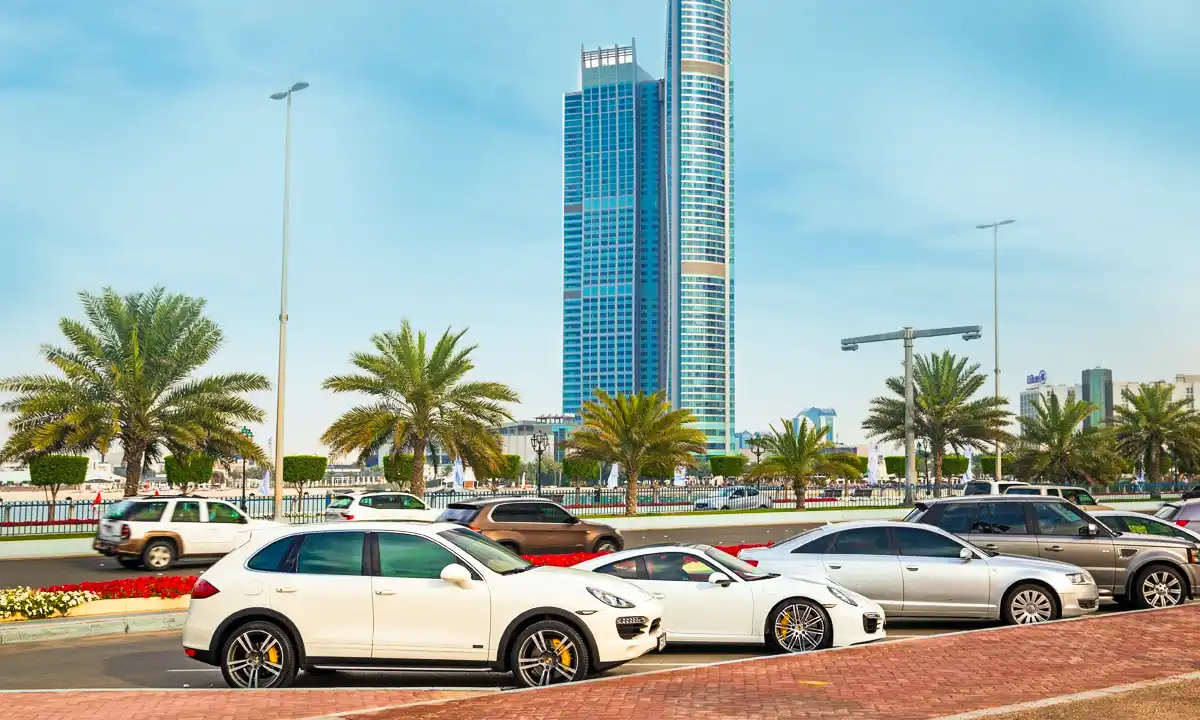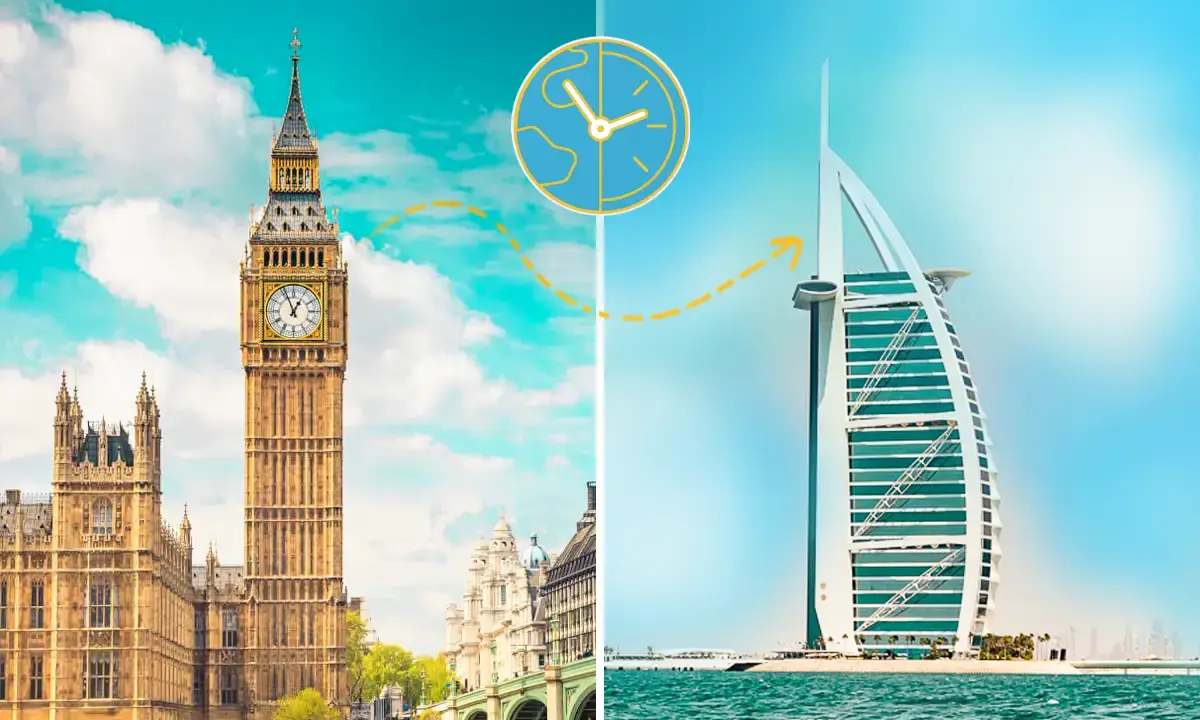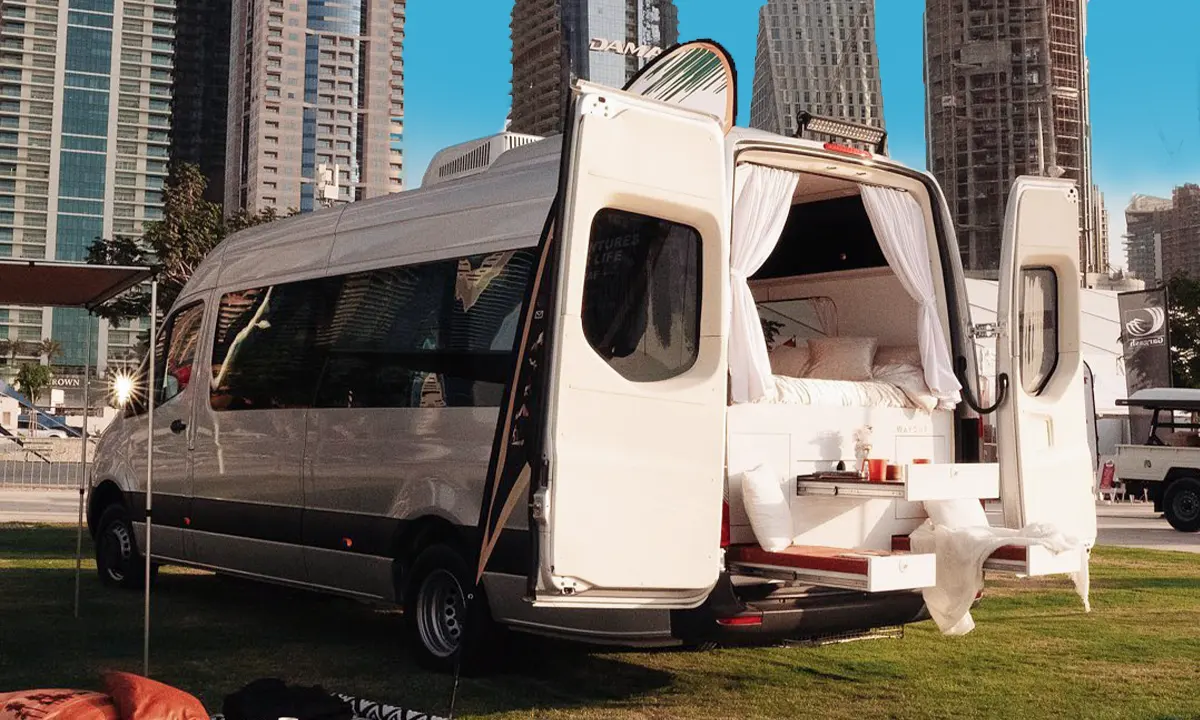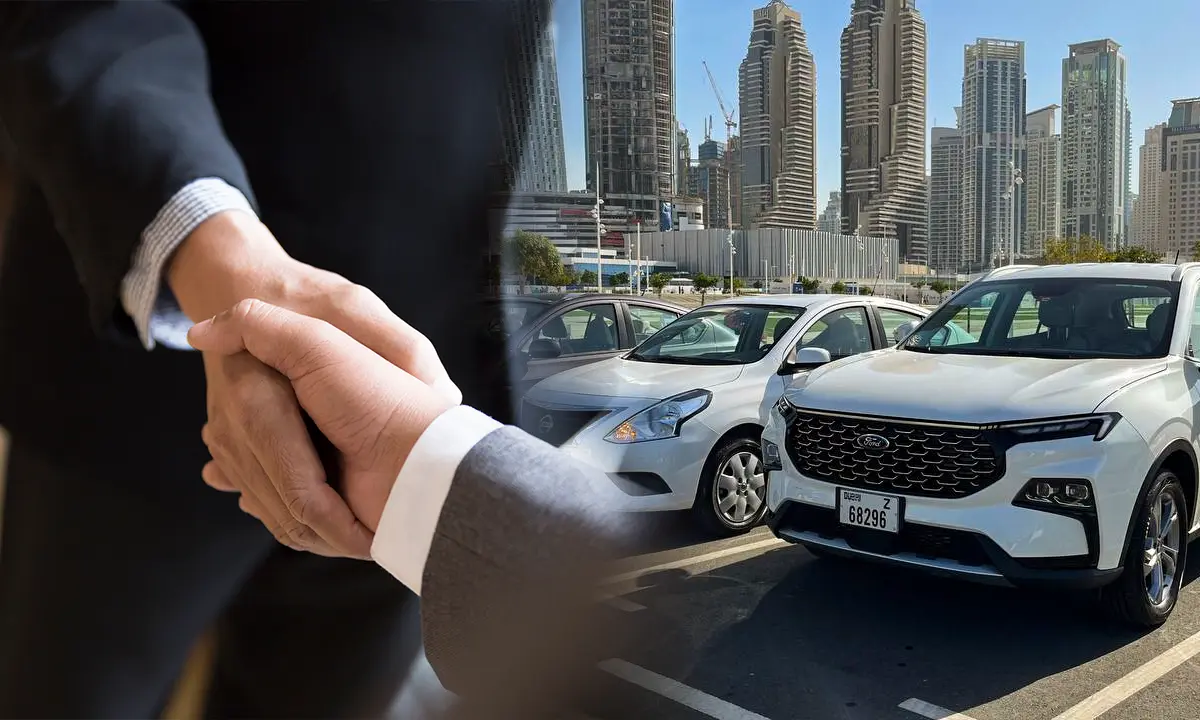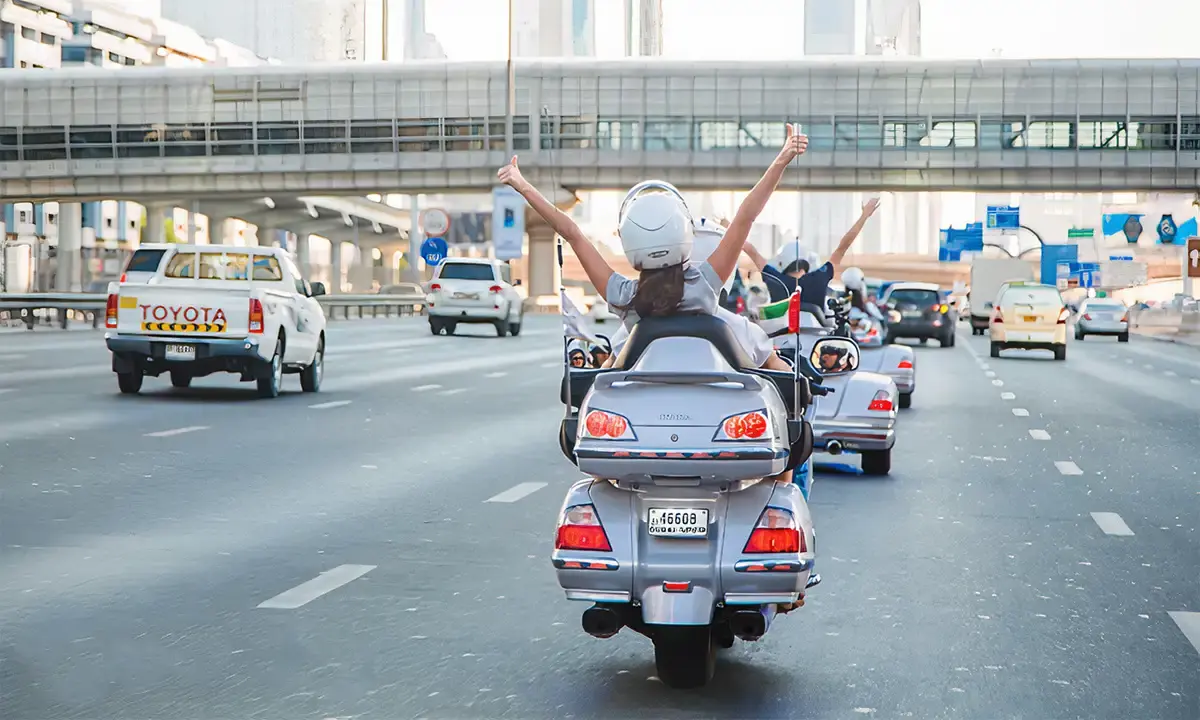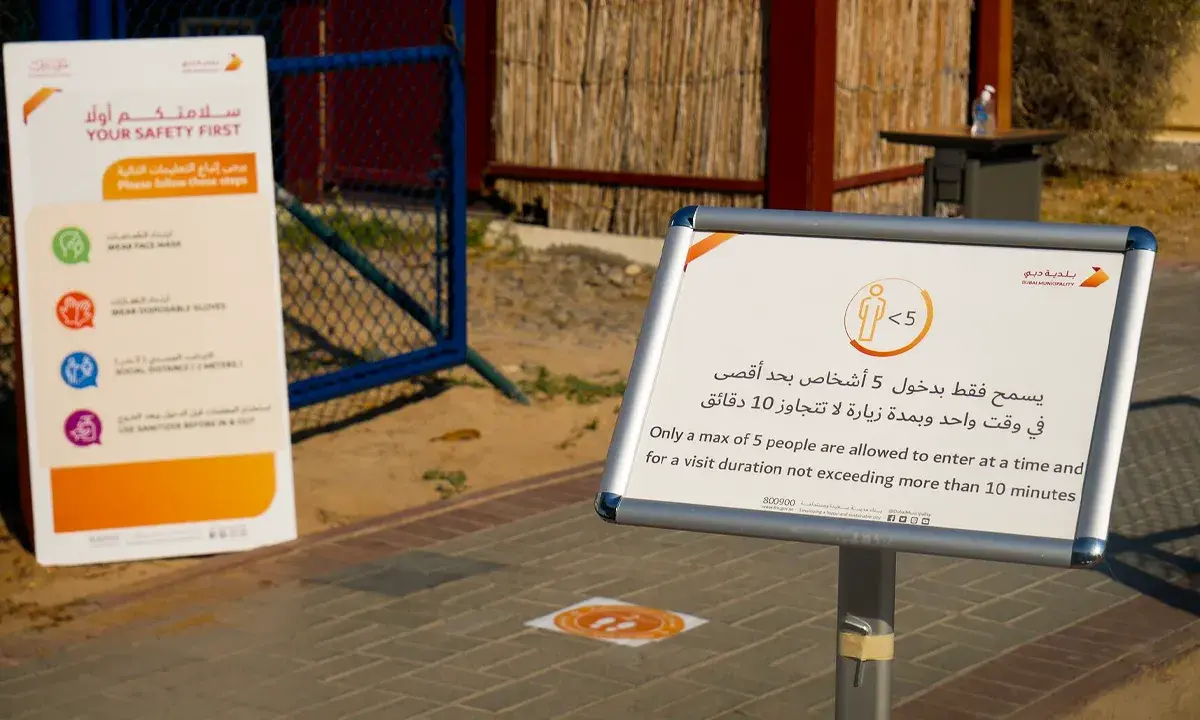Is Dubai safe? Dubai is one of the safest countries in the world, thanks to contemporary control technology and stringent laws.
Dubai is one of the most popular tourist destinations in the world, known for its modern architecture, luxury shopping, and vibrant nightlife. As with any travel destination, safety is a key concern for visitors. This article provides a practical and straightforward guide to help tourists understand the safety aspects of visiting Dubai.
Crime Rate in Dubai, Is Dubai Safe?
Dubai is renowned for its exceptionally low crime rate, making it one of the safest major cities globally. Compared to other metropolitan areas, instances of petty crimes such as pickpocketing are infrequent, while violent crimes are exceedingly rare. The city’s strict legal system and the highly effective police force play crucial roles in sustaining this secure environment, ensuring both residents and visitors can enjoy peace of mind during their stay.

What are the safety tips for traveling to Dubai?
- Respect Local Laws and Customs: Dubai is part of the United Arab Emirates (UAE), which follows Islamic laws and customs. Dress modestly, avoid public displays of affection, and be mindful of local traditions.
- Stay in Safe Areas: Tourist areas like Downtown Dubai, Jumeirah, and Dubai Marina are very safe. Stick to these areas, especially if you’re traveling alone.
- Use Reputable Transportation: Use licensed taxis, and ride-sharing apps like Uber and Careem, or the Dubai Metro for safe and reliable transportation.
- Keep Valuables Secure: Although crime is low, it’s still wise to keep your valuables secure. Use hotel safes and be cautious in crowded places.
- Be Aware of Alcohol Consumption Rules: Dubai has specific regulations about alcohol consumption; it is allowed only in licensed venues, and public intoxication is strictly prohibited.
- Avoid Sensitive Topics: Be cautious when discussing sensitive topics such as politics, religion, and cultural practices to avoid misunderstandings or offending local sensibilities.
- Know Emergency Numbers: Keep a list of emergency contacts such as the local police, your embassy, and medical services. The general emergency number in Dubai is 999.
- Sun Protection and Hydration: Given Dubai’s hot climate, protect yourself from the sun with sunscreen, hats, and sunglasses, and stay hydrated, especially if you plan on outdoor activities.
- Travel Insurance: Always have comprehensive travel insurance that covers medical expenses, theft, and trip cancellations.
- Respect Swimming and Beach Rules: Follow local rules and signs at beaches and swimming pools, which can include guidelines on attire and behavior.
Is Dubai Safe for Women?
If you’re wondering, “Is Dubai safe for women?”, the short answer is yes, absolutely! Whether you’re traveling solo, with friends, or for business, Dubai offers a comfortable and secure experience for female travelers.
Safety and Cultural Considerations
Dubai is a modern, international city with a welcoming atmosphere for women. However, since it’s part of the United Arab Emirates, it does have a conservative cultural side. Here’s what you should know:
- Public Safety: Dubai has one of the lowest crime rates in the world. Violent crime is extremely rare, and street harassment is almost nonexistent, thanks to strict laws and social norms.
- Public Transport: The Dubai Metro has women-only cabins, and taxis with female drivers (pink taxis) are available for women who prefer them.
- Dress Code: While there’s no strict dress code for tourists, modest clothing is appreciated, especially in public areas, malls, and traditional districts.
- Solo Travel: Many solo female travelers say they feel safer in Dubai than in most Western cities, thanks to the high security presence and cultural respect.
Is Dubai Safe at Night?
Dubai is very safe for women even at night. You can walk around tourist areas, beaches, and shopping districts without worry. However, like anywhere else, it’s always best to:
- Stick to well-lit and populated areas.
- Avoid excessive drinking in bars (though Dubai has strict regulations on alcohol).
- Use official taxis or ride-hailing apps like Uber and Careem for transportation.
Is Dubai Safe? Health and Medical Facilities in Dubai
Dubai is renowned for its world-class medical facilities, with healthcare standards that are among the highest globally. The city hosts a range of state-of-the-art hospitals and clinics equipped with the latest technology and staffed by highly trained professionals. Pharmacies are conveniently located throughout the city, and many operate around the clock, ensuring access to medications and health products at all times.
Additionally, it’s essential for visitors to have travel insurance that covers medical expenses to avoid any unexpected healthcare costs. This is particularly important in Dubai, where medical treatment can be expensive. It’s advisable to check that your insurance provides adequate coverage for both emergencies and routine healthcare, aligning with the high standard of services available in the city.
All in all, is Dubai safe when it comes to health issues? Dubai’s commitment to maintaining excellent health facilities makes it a safe destination for both tourists and residents alike, with readily accessible medical care.

Understanding Dress Codes and Public Behavior Standards in Dubai
In Dubai, adherence to local dress codes and public behavior standards is crucial due to the region’s conservative Islamic culture. Here are the key guidelines:
- Dress Modestly: Both men and women are advised to wear attire that covers shoulders and knees. In more traditional areas and religious sites, it’s recommended to cover up further, with long sleeves and trousers or long skirts.
- Public Conduct: Public displays of affection, such as kissing or hugging, are considered inappropriate and can lead to fines or arrest. Behavior should be respectful and subdued.
- Swimming Attire: At the beach or pool, swimwear is acceptable but should be conservative. It’s important to change back into regular clothes when leaving these areas.
- Alcohol Consumption: Drinking alcohol is permitted only in licensed venues, such as hotels, bars, and private clubs. Public intoxication is illegal and can result in penalties.
- Photography: Always ask for permission before photographing people, especially local Emirati women. Avoid taking pictures of government buildings, military sites, and other sensitive areas.
By following these guidelines, visitors can ensure they respect the local culture and avoid any legal issues during their stay in Dubai.
Are women fined for hijab in Dubai?
No, women are not fined for wearing hijab in Dubai. Is Dubai safe for women? Yes! The city is known for its multicultural environment and respect for personal choices in attire. However, it is essential to adhere to local laws and dress codes to ensure a respectful experience in public spaces. While wearing a hijab is perfectly acceptable, dressing modestly is encouraged throughout Dubai, in line with the cultural values of the United Arab Emirates. Observing these guidelines not only reflects respect for local customs but also contributes to a harmonious atmosphere for both residents and visitors.

Navigating Dubai Safely: Transportation Options and Tips
When traveling in Dubai, choosing safe and reliable transportation is crucial for a smooth experience. Here’s how to navigate the city securely:
- Licensed Taxis: Opt for official taxis, which are readily available and recognizable by their cream color and varied roof colors indicating different operators. They are metered, well-maintained, and regulated by the Roads and Transport Authority (RTA).
- Ride-Sharing Apps: Services like Uber and Careem provide a convenient and safe alternative to taxis. They offer the advantage of cashless transactions and the ability to track your ride and share your trip details with others.
- Dubai Metro: The metro is a safe, efficient, and cost-effective way to get around Dubai. Stations and trains are clean, air-conditioned, and equipped with security features, making it a popular choice among residents and tourists alike.
- Car Rental: Renting a car can be a great option if you prefer the flexibility of driving yourself. Choose a reputable rental company like Saadat Rent that provides comprehensive insurance and clear rental terms. Make sure you’re familiar with local driving laws and conditions.
- Public Buses: Dubai’s extensive bus network is a reliable and economical option for travel. Buses are modern, air-conditioned, and fitted with surveillance cameras to enhance passenger safety.
By using these trusted transportation methods, you can ensure your travel within Dubai is both safe and enjoyable. Remember to plan your routes in advance and stay aware of your surroundings, especially when using public transport.

Is Dubai Safe to Carry Cash: Tips for Securing Your Money and Credit Cards
When traveling in Dubai, ensuring the security of your finances is crucial. Here are some tips to help keep your money and credit cards safe:
- Limit Cash Carrying: Avoid carrying large amounts of cash. Instead, use credit or debit cards for most transactions, as they are safer and widely accepted in Dubai.
- Use Secure Payment Methods: Opt for contactless payments or mobile wallets when possible. This reduces the risk of theft and is more convenient.
- Store Valuables Safely: Keep your cash and cards in a secure location, such as a hotel safe. When out, use a money belt or a crossbody bag that zips closed.
- Be Cautious at ATMs: Use ATMs located in well-lit, populated areas or inside banks to withdraw cash. Always cover your PIN while entering it.
- Monitor Your Accounts: Regularly check your bank statements and transaction history for any unauthorized charges. Report any suspicious activity immediately.
Is Dubai Safe to Get Around? Navigational Safety in Dubai
Navigating Dubai’s vibrant streets can be a rewarding experience, but it’s essential to use reliable tools to ensure safe and efficient travel. Here are some tips for navigational safety:
- Use Trusted GPS Services: Opt for well-known GPS applications like Google Maps or Waze, which provide real-time traffic updates and optimal routes. These services can help you avoid congested areas and find the quickest paths.
- Familiarize Yourself with Landmarks: Dubai is home to many iconic landmarks. Familiarizing yourself with these can make navigation easier and more intuitive.
- Download Offline Maps: In case of limited internet connectivity, download maps for offline use. This ensures you can access navigation even without data.
- Stay Aware of Your Surroundings: While using GPS, remain vigilant and aware of your surroundings. Avoid distractions and always obey traffic signals and signs.
- Ask for Directions: If you’re unsure about your route, don’t hesitate to ask locals for directions. Residents are often friendly and willing to assist.
Emergency Preparedness for Tourists in Dubai
Being prepared for emergencies while visiting Dubai is essential for ensuring your safety and well-being. Here’s a guide to emergency contacts and procedures:
Emergency Contacts:
- General Emergency Number: Dial 999 for police, fire, or medical emergencies.
- Ambulance Services: For medical emergencies, you can also contact the ambulance service directly at 998.
- Tourist Police: Reach out to the Tourist Police by calling 800-888 for assistance specifically tailored to visitors.
Understanding Legal Resources:
- Local Laws and Regulations: Familiarize yourself with Dubai’s laws, as they can differ significantly from those in your home country. Respecting these laws will help you avoid potential legal issues.
- Legal Assistance: If you require legal help, contact your embassy or consulate in Dubai. They can provide guidance and support in legal matters.
Reporting Incidents:
- In the event of a crime or emergency, report it immediately to the local authorities. Keep a record of any documentation provided for future reference.
Areas of Caution for Travelers in Dubai
While Dubai is generally a safe city, there are certain areas and times when travelers should exercise increased vigilance:
Areas Requiring Extra Caution:
- Al Satwa and Deira: These neighborhoods are bustling with activity and can be crowded, which may attract petty crime. Keep an eye on your belongings in busy markets and public spaces.
- Nightlife Districts: Areas known for nightlife, such as parts of Dubai Marina, can be lively. Stay aware of your surroundings, especially late at night.
Times for Increased Caution:
- Late Night Hours: While the city is relatively safe at night, exercise caution in less populated areas or after hours, particularly when returning to your accommodation.
- Public Holidays and Events: During major public events, festivals, or holidays, the influx of visitors can lead to crowded conditions. Be vigilant in crowded places and stay alert for pickpockets.

Last Word
Is Dubai safe for travelers? Dubai is a very safe destination for travelers. By following local laws and customs, staying in safe areas, and using common sense, tourists can enjoy a worry-free visit to this dynamic city. Dubai’s hospitality, world-class amenities, and low crime rate make it an ideal destination for a safe and enjoyable holiday
FAQ
Yes, Dubai is considered one of the safest cities in the world for solo travelers. The crime rate is low, and the city has a visible police presence. However, as with any destination, it’s advisable to stay aware of your surroundings, especially in crowded areas, and adhere to local customs and laws.
In the event of an emergency, you can contact the police by dialing 999. For medical emergencies, dial 998 for an ambulance. It’s also recommended to keep a list of emergency contacts and local resources, including your country’s embassy or consulate, handy during your stay.
Yes, it’s important to respect local customs and laws in Dubai. Dress modestly in public areas, avoid public displays of affection, and be mindful of local traditions. Familiarizing yourself with these cultural practices not only enhances your experience but also ensures your safety and comfort while visiting.
